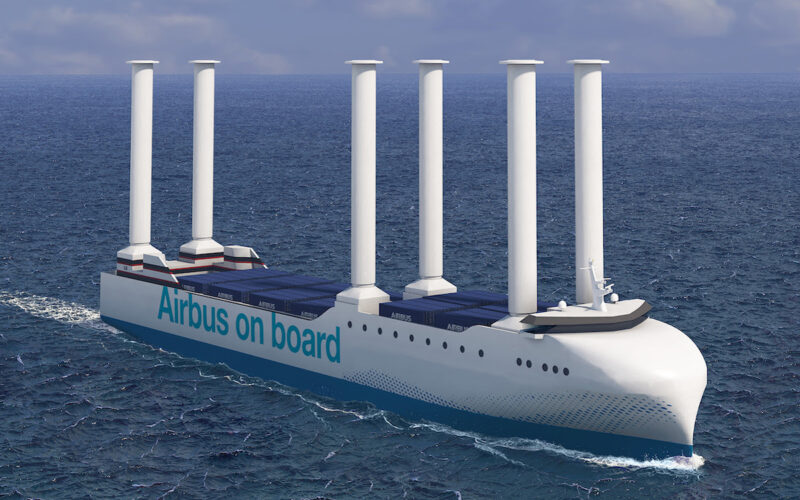Airbus’ latest initiative to reduce its carbon footprint, will not take place in the sky, but rather at sea.
The European aircraft manufacturer has selected an innovative design with state-of-the-art sail technology for its next generation of ocean-going cargo vessels tasked with ferrying aircraft subassemblies from Europe to the United States.
French shipping company Louis Dreyfus Armateurs operates a fleet of three ships out of Saint-Nazaire, on France’s Atlantic coast, that help to keep Airbus’ assembly line in Mobile, Alabama, supplied with the parts and components it needs to produce Airbus A320-family aircraft.
From 2026 the current fleet will be replaced with three newly built vessels fitted with six Flettner rotors each. These are large cylindrical structures that, like traditional sails, can harness wind power to propel the ship forward. The ships will also have two dual fuel engines able to run either on conventional maritime diesel fuel or e-methanol.
Airbus estimates that the adoption of these new technologies will allow it to reduce its shipping-related carbon emissions by more than half, from 68,000 to 33,000 tons per year.
The newly built ships will also have larger capacity. On each trip they will be able to carry around 70 40-foot containers. Whereas the ships currently in service are able to carry between three and four sub assembly sets for narrowbody aircraft (each containing the wings, fuselage, engine pylons, horizontal and vertical tail planes necessary to assemble the aircraft), the new ones will bring that number to six.
This increase in capacity is in line with Airbus’ plans to ramp-up its monthly production rate for the A320-family to 75 aircraft per month globally.
In recent times, wind-powered ships have caught the attention of aerospace companies as a way to lower supply chain emissions.
European space firm Arianespace is already using a ship called Le Canopée fitted with a hybrid propulsion system that includes four rotatory sail-like masts to harvest wind power during its ocean crossings. The Canopée is operated by shipping company Jifmar Offshore Services to transport Ariane 6 rockets from production facilities in Europe to the Kurou space center, in French Guiana.

